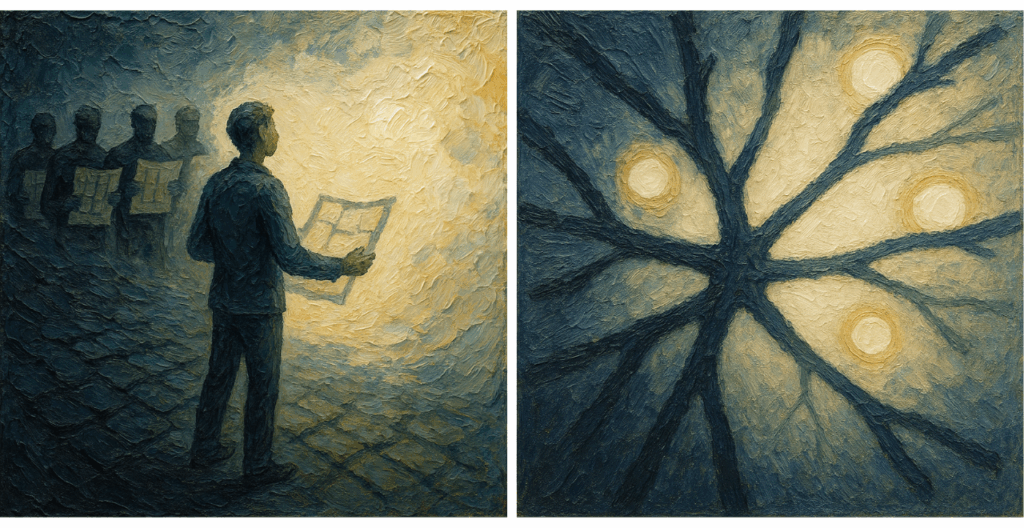
Every scientific field has a frontier – a place where our current knowledge ends. Researchers spend their careers there, comfortable in the unknown, and even excited by it.
Yet in daily life, admitting “I don’t know” feels like failure. At work, we’re often encouraged to hide our knowledge gaps and sometimes overstate our expertise. So we perform certainty. We nod along in meetings. We get good at pretending to know.
This performance comes at a cost. When we can’t admit what we don’t know, we stop learning and growing.
On the other hand, when ignorance is acknowledged and explored, it can become one of our most powerful tools.
Part of the problem is psychological. Incomplete knowledge creates a double burden. We overestimate what we know because we lack the knowledge to see the gaps.
The social dimension matters too. When we worry about looking incompetent, our curiosity might shut down entirely. We stop asking questions and start protecting our image.
But not all cultures treat ignorance as shameful. In Zen Buddhism, “beginner’s mind” (or shoshin) is considered essential for deep understanding, where the beginner sees possibilities that experts might miss entirely because they’re constrained by their assumptions.
Some professions also embrace ignorance as daily practice. Physicist James Clerk Maxwell wrote that “thoroughly conscious ignorance is the prelude to every real advance in science.” For scientists, saying “I don’t know” is where curiosity begins.
When you stop hiding what you don’t know and start treating ignorance as useful information, several things change:
- Better creativity. Admitting that you don’t know gives you permission to explore unconventional solutions.
- Better collaboration. Acknowledged ignorance is contagious in productive ways. When one person admits they don’t know (especially if they’re in a position of leadership), others feel safe to do the same and teams can shift from performative problem-solving to real problem-solving.
- Better decision-making. Many bad decisions are caused by the illusion of certainty. Recognizing the limits of your knowledge helps you avoid overconfidence.
Reclaiming your ignorance isn’t about cultivating false modesty or undermining your expertise. It’s about developing a more accurate relationship with what you know and don’t know. Here are three simple ways to do that:
1. Create ignorance maps. You’re probably familiar with mind maps that capture what you know about a topic. Try inverting this: write down what you understand, then explicitly highlight what you’re uncertain about. Finally, brainstorm how you could explore those knowledge gaps, creating a mini research agenda.
2. Name your opinions. If you can’t explain something clearly or defend it against basic objections, you probably hold an opinion rather than knowledge. And that’s okay – just name it as such.
3. Voice what you don’t know. Start small with low-stakes situations. When someone asks what you think about a new restaurant or recent news, try responding with genuine uncertainty (“I’m still thinking about it”, “I’m not quite sure yet”, “First time I hear about this, tell me more!”), instead of manufacturing a confident answer on the spot.
Ignorance doesn’t have to be the enemy of knowledge. When you face it directly, it can become fuel for curiosity. This requires knowing exactly what you know, what you don’t, and being honest about the difference.
That takes practice, but it’s the only way to keep learning and growing.
Tiny Experiment of the Week
Ready to put these ideas into practice? Try this week’s tiny experiment to help you reclaim your ignorance by voicing what you don’t know:
I will [practice saying “I don’t know”] for [5 days].
Again, start with low-stake situations, then work your way up to more uncomfortable ones. Want to dig deeper? Get your copy of Tiny Experiments.
